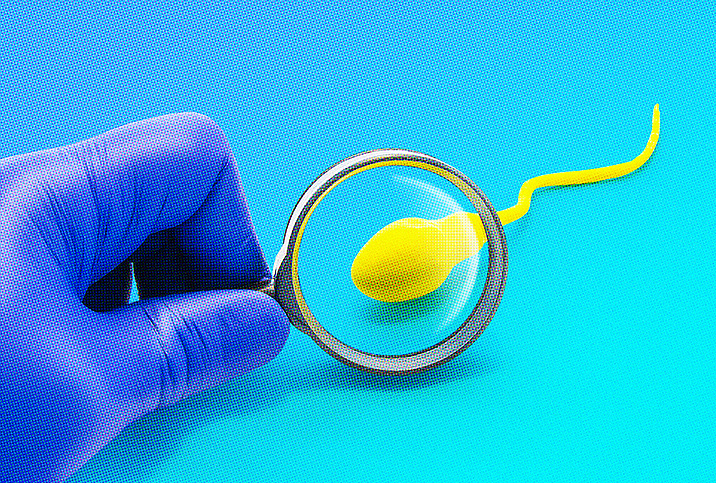Do At-Home Male Fertility Tests Really Work?

For many men, being seen as virile and fertile is an important part of their identity. And while we now have a more intricate and nuanced appreciation of what masculinity entails, the ability to father children is still tied to the idea of manhood for many guys of all ages.
For these reasons and more health-related concerns, a man might want to have a better understanding of his sexual health, including sperm count, sperm motility and other aspects of fertility.
Now, this search for knowledge can be conducted in the comfort of your own home with at-home male fertility tests. But do these tests actually work? What can they tell you about your reproductive or sexual health? And when might an at-home fertility test indicate something that should be brought up with a doctor?
What can these tests tell you?
Among the many reasons guys might opt to take a fertility test at home—in the face of sometimes intense societal pressure to be virile—is that professional fertility tests are frequently not covered by insurance. Also, men or couples in remote or rural locations might not have convenient access to a fertility specialist or qualified medical professional. Some men may only want to get a rudimentary understanding of his sperm count without learning the more complex aspects of their fertility status. In any of these cases, consumer-level fertility testing may be a good starting point.
For the most part, this is all an at-home male fertility test will tell you. But there have been some interesting developments.
Different types of fertility tests
The most basic versions of tests provide a simple report on sperm count and sperm volume within a sample of ejaculate. Some tests will reveal a positive/negative result as to the presence of sperm in an ejaculate sample, while others might be able to give a rough estimate or evaluation of sperm quantity. This information addresses only a fraction of what might be helpful to couples if they're facing fertility issues, including testing female partners for their own fertility issues.
More advanced at-home fertility tests try to mimic the functions of an andrology lab by incorporating hardware designed to interface with a smartphone or computer. These tests can take a bit of a closer look at the sperm and sometimes determine if there are sperm concentration or motility issues beyond the basic quantity of sperm inside an ejaculate sample.
When to see a doctor
Lab tests are much more comprehensive than currently available home options. Andrology labs use a combination of human observation through a microscope along with computer analysis to evaluate semen for sperm quantity, sperm health, percentage of sperm in motion (motility), acidity or pH levels of sperm, sperm morphology (size and shape) and ejaculate volume.
Barring any unique medical history or other causes of concern that could potentially influence fertility or sexual health, most fertility specialists will recommend that couples who want to conceive through intercourse try for one year before jumping to conclusions about fertility issues. In some situations, specialists may ask couples to try conceiving for a longer period or recommend fertility testing within six months of attempting pregnancy.
One of the benefits of at-home tests is that they can reveal some basic information, such as estimated sperm count and ejaculate volume, to start pointing patients and their medical teams in the right direction.
For example, if a store-bought test reveals low sperm count or confirms a patient's suspicions that their ejaculate volume may be low compared to other men their age, it's reasonable to take those concerns to a doctor. On the other hand, a high sperm count or volume of ejaculate can still contain a large quantity of nonvital or immotile sperm, meaning a low chance of conception through sex.
So, if at-home tests don't bring up any cause for concern, but you and your partner still aren't able to conceive, it may be necessary to see a doctor. Generally speaking, you should never hesitate to bring up health concerns, whatever they may be, with your doctor.
The takeaway of take-home testing
At-home fertility tests can provide some clues about your sexual and reproductive health, but they are a far cry from replacing lab-based evaluations by a professional medical team.
Your doctor can take into account your family and medical history. A team of lab workers with modern technology at their disposal can examine data in greater detail and across a broader scope. And, of course, an at-home male fertility test can't do much to consider the sexual or reproductive health of a partner.
If you have serious concerns about your sexual or reproductive health, it's important to bring them to a doctor. Many fertility-related issues can be addressed with treatments, including medicines, lifestyle changes, testosterone treatments and surgical procedures for both men and their partners.
Unfortunately, cost and convenience are factors in the health decisions we make. If you have minor concerns about fertility or you're not quite ready to see a doctor, an at-home test might be right for you.


















